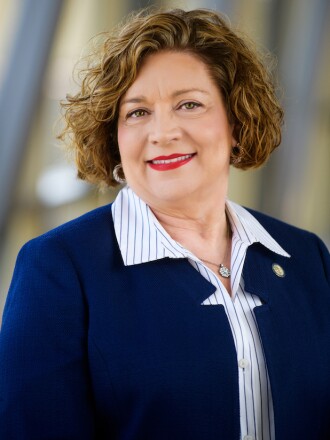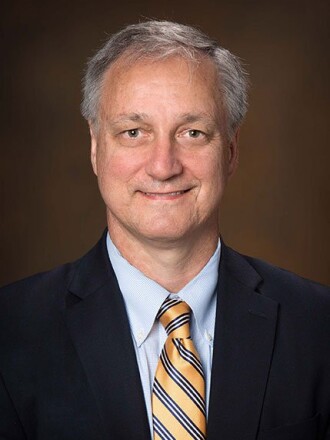
ROCHESTER — From the MinnesotaCare public option proposal and medical debt relief to a hospital CEO pay cap and the End-of-Life Option Act, health care legislation remains at the forefront of the Minnesota Legislature’s regular session in 2024
Among those potential laws are several bills that would have Minnesota join interstate licensing compacts for certain health professions. In the Minnesota Senate, these bills have the support of at least one of Rochester’s senators.
“If you move to another state, even if you’ve been in your profession for 30 years … you have to go through the process of getting licensed in that state,” said Sen. Liz Bolden, DFL-Rochester. “The benefit of the contract is that there is reciprocity; there is recognition of a license from another country.’
And Sens. Carla Nelson, R-Rochester, and Bolden co-sponsored SF 2990, which would have Minnesota join the emerging Compact for Dentists and Dentists.
“Local dentists have contacted me about it,” Nelson said. “We have some dentists who can’t practice to their full capacity because they don’t have enough dental assistants and dental hygienists.”
Nelson is also the lead author of SF 3281, which would have Minnesota join the Nurse Licensing Compact. In addition, Bolden was the lead author of the Audiology and Speech-Language Pathology Compact Bill (SF 2656) and co-sponsored bills for compact contracts for physician assistants, vocational counselors, physical therapists and social workers. Another bill, SF 1572, would affect occupational therapists.
The wave of licensing bills comes as these agreements between states and their health care workers become more common.
What are Interstate License Agreements?
Traditionally, when a medical professional wants to practice in a different state, they must apply for a license in that state. A dentist, for example, who is licensed in Minnesota would need to seek a license in Wisconsin to practice there.
That’s what Dr. Isaac Perry did when his family’s Minnesota-based dental practice, Perry Dental, expanded to Pepin, Wisconsin a few years ago. Perry, his sister and fellow dentist Dr. Ava Perry Line and two of their dental hygienists now hold licenses in both states.
“Some states require different board exams,” Perry said. “But Minnesota and Wisconsin require the same exam, so I didn’t have to take anything extra; I just had to gather all my past papers, all my certifications and send them to the Wisconsin Board of Dentistry.”

Contributed / Sen. Liz Bolden, DFL-Rochester
In addition to maintaining his Minnesota dental license, Perry must renew his Wisconsin license every three years.
The administrative process to obtain a new license can take several months, which can delay how soon that person can start their new job or expand their practice across state lines.
“If you think about a military family, they move every one to two years on average, which is very challenging, especially if there’s a spouse who has a licensed occupation,” said Matt Shaffer, deputy program director at the National Center for Interstate Contracts at Council of State Governments. “When that person has to get a new license every one to two years in a new state, it’s extremely burdensome on the military spouse.”
License agreements were created to speed up this process. In 1999, the Nurse Licensing Compact became the first compact of its kind in the country, and today 39 states participate in the NLC.

Contributed
“The idea was to have seamless nursing practice and safe nursing practice across state lines, whether it’s in person or electronically,” said Nicole Livanos, director of state affairs for the National Council of State Boards of Nursing.
Several state contracts now exist for licensed workers such as nurses, physical therapists, physician assistants, speech therapists, and others. Each treaty has its nuances, but in general, they speed up licensing by sharing a professional’s credentials between participating states, rather than the professional sending those credentials to each state each time they apply for a license.
A registered nurse in Wisconsin, for example, already holds a multistate license because Wisconsin is a member of the NLC. This means that this nurse can also work in Iowa or another NLC state without having to go through a separate licensing process for each state.
This process is slightly different for the Interstate Medical Licensure Compact Commission, which is the licensing compact used by 41 states for doctors. Each state still issues its own medical license, but if a doctor applies for licensure in an IMLCC state and is eligible, his credentials (such as medical school transcripts) are sent between those states’ medical boards.
As of March 2023, 455 Minnesota physicians have used the physician contract to obtain licensure in another state, said Marshall Smith, IMLCC executive director.
“It’s set up to collect the data once and then share it between the different states that are in the contract,” said Dr. Michael Dolan, chief clinical officer of Gundersen Health System’s hospitals and clinics in Minnesota, Iowa and western Wisconsin.

Contributed / Gundersen Health System
Dolan said about 35 percent to 40 percent of Gundersen’s 600 physicians and 400 advanced practice providers, including himself, hold multiple state licenses. Because Minnesota is a member of the IMLCC, “I think I was licensed in less than 60 days,” Dolan said.
DDH compact will work similarly once it is up and running. Shaffer, who is helping oversee the development of that compact, said the brand new compact is supported by the American Dental Association and the American Dental Hygienists Association and currently has five members: Washington, Iowa, Virginia, Wisconsin and Tennessee. Once a total of seven countries accede to the treaty, it will enter into force.
Currently, Minnesota is part of only two interstate licensing compacts: the IMLCC and the Interjurisdictional Compact in Psychology. Minnesota has temporarily allowed out-of-state nurses to practice in the state without a Minnesota license during the COVID-19 pandemic.
But Minnesota could soon be part of the NLC, DDH compact and more.
“You go from a scenario where it might take months to be able to get a license in another state, to, with the compact, being able to access work in another state in minutes,” Schafer said.
How do agreements affect the health care workforce?
The workforce shortage affecting Minnesota’s health care sector is one of the main drivers behind Bolden and Nelson’s compact bills, they said. By shortening the time it takes for a nurse or dentist to become licensed in Minnesota, they can start working here sooner.
“If we can make Minnesota a state that is more open to these qualified, well-trained people (who) have gone through these national boards, to be able to practice in our state without having to go through all the individual hoops of each state, Nelson said, “I think it can help with the labor shortage.”
Having more staff who can practice in different states can help health systems fill staffing gaps, Dolan said. If a doctor at a Minnesota clinic is sick for a day, Gundersen can have a Wisconsin-based doctor fill in at the Minnesota clinic instead of having those patients travel to a Wisconsin location for their appointment.
“We can have a surplus of individuals in one place and then develop an acute need elsewhere,” Dolan said. “Being able to easily move (staff) around because they’re all licensed in all these locations makes fulfilling our mission of providing the right care close to home much more achievable.”
If Minnesota enters the DDH contract, it likely won’t have an immediate effect on Perry and his colleagues, as they have already gone through Wisconsin’s licensing process.
“It would probably only affect us if we had a new provider that was only licensed in one (state) and then it would be easier to get dual licensing,” Perry said. “Overall, I think it’s a smart idea.”
Why are licensing agreements offered now?
In addition to health care shortages, the rise in the use of telemedicine and the increased mobility of the American workforce came into play during the COVID-19 pandemic, Nelson said. A healthcare provider can provide care via telemedicine only if they are licensed in the state where the patient lives.
“Patients and their doctors, their dentists, their dental assistants, their hygienists, they’re all mobile,” Nelson said. “We are all in different places at many times and yet we all need this expert care.”
Another reason is the fact that the Minnesota Legislature hasn’t touched on these proposals much in the past few years, Bolden said.
“There is some backlog from various professions that want them to be heard,” Bolden said. “There’s a good list of them at this stage.”
The adoption of licensing agreements has become more common for states since the founding of the NLC, but interstate agreements themselves are not a new concept, Smith said.
“The most common example of a contract that affects people almost every day is the Driver’s License Contract,” Smith said. “It allows states to control and regulate the use of automobiles and how people drive … but it still allows people to drive in other states and obey, practice and follow those laws.”
“I think contracts are really the next natural progression in the licensing process,” Smith added.
Nelson said she has high hopes that her nursing and dental bills will advance this year.
“There is no opposition to the dental (compact),” Nelson said. “The Nursing Licensing Agreement, over the last few years, we’ve had phenomenal hearings — the Department of Defense, nurses, nurse educators, physicians, insurers, hospitals, all of these associations support it.”
The Minnesota Nurses Association in previous years opposed Minnesota joining the NLC. A representative for the MNA did not respond to the Post Bulletin’s request for comment by deadline.
“In terms of licensing agreements, I think they’re on a pretty good track right now,” Bolden said. “We’ve heard a lot of them in committee, and a lot of them don’t really have any controversy.”
The group of licensing bills — with the exception of the NLC proposal — passed through the Senate Health and Human Services Committee in early March.

Forum news
